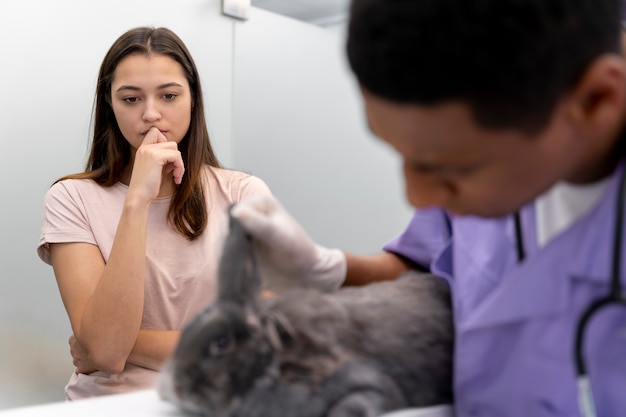Understanding Food Allergies in Dogs and Cats

Does Your Pet Have a Food Allergy?
Food allergies in dogs and cats can be confusing for pet owners. While occasional tummy troubles or itchy skin might seem normal, they could be signs of an underlying issue. At Express Vets Holly Springs, we want to help you identify and address food allergies so your furry friends can enjoy a happy, itch-free life.
What Causes Food Allergies in Pets?
Food allergies in pets occur when their immune system mistakes a food protein as harmful and reacts against it. Common culprits include chicken, beef, dairy, eggs, and grains, although any ingredient can potentially cause an allergic response.
Some pets are genetically predisposed to food allergies, while others may develop them after being exposed to the same protein repeatedly. It’s important to remember that food allergies are different from food intolerances, which usually cause digestive issues rather than immune responses.
Spotting the Signs of Food Allergies
Recognizing the signs of food allergies can be tricky because they often mimic other conditions. Symptoms include persistent itching, redness, or sores on the skin, particularly around the ears, paws, or belly. Recurring ear infections are another red flag.
Some pets may also experience digestive issues like vomiting, diarrhea, or excessive gas. Behavioral changes, such as irritability or excessive licking, might indicate discomfort as well. If you notice these symptoms, a visit to the vet is crucial for a proper diagnosis.
Diagnosing Food Allergies
Diagnosing food allergies in pets requires a bit of detective work. Your veterinarian may recommend an elimination diet, which involves feeding your pet a novel protein and carbohydrate source they’ve never eaten before. Over several weeks, this diet can help pinpoint the offending allergen.
In some cases, veterinarian-recommended hydrolyzed diets are used. These break down proteins into smaller components, reducing the chance of triggering an allergic reaction. It’s essential to follow the diet strictly during the testing period—no table scraps or treats!
Treating and Managing Food Allergies
Once the allergen is identified, the solution is simple: avoid it. Many high-quality commercial pet foods cater to pets with food allergies, offering limited-ingredient diets or grain-free options. For pets with severe allergies, a homemade diet prepared under a veterinarian’s guidance may be necessary.
Your vet might also recommend medication or supplements to soothe symptoms like skin irritation while the diet takes effect. Consistent follow-ups are key to ensuring your pet stays comfortable and allergy-free.
Prevention and Care for Allergy-Prone Pets
While food allergies can’t always be prevented, feeding your pet a balanced and varied diet may help reduce the risk of developing sensitivities. Regular check-ups at Express Vets Holly Springs ensure we catch any health concerns early.
For allergy-prone pets, sticking to hypoallergenic diets and avoiding foods with known triggers will be a lifelong commitment. The good news is that with proper care, most pets with food allergies can lead normal, healthy lives.
Does your pet show signs of food allergies? Our team at Express Vets Holly Springs is here to help. Schedule an appointment today by calling (678) 402-8717 or giving us a visit at 6244 Holly Springs Parkway Suite D,Holly Springs, GA 30188 to discuss your concerns and find the best solution for your furry companion.



















